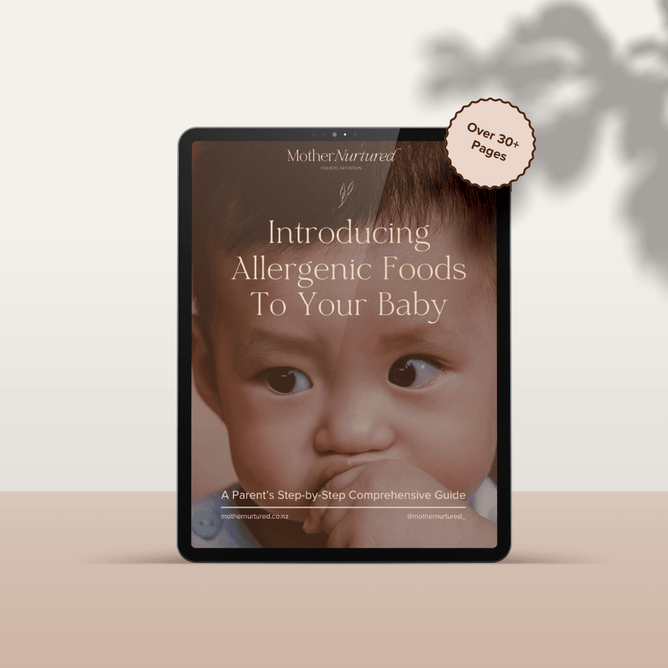9 Foods to Introduce Before Age 1 (& why you should)
Research suggest offering allergenic foods between 6–12 months of age can actually decrease your baby’s potential risk of developing food allergies. Doing so helps inform their immune system to develop tolerance and protects against an overactive response to these common foods.
Once your baby has shown tolerance to an allergen, continuing to offer it at least twice weekly helps maintain that tolerance and reduce the risk of a future allergy (Source, Source).
That’s why leading global health organisations, including the World Health Organisation, now recommend introducing allergens during the first year of life, rather than delaying them.
That’s right—waiting too long might actually increase their chances of reacting later on.
Here are the 9 common food allergens to introduce in the first 12 months:
Egg
Peanut
Cow’s milk
Tree nuts
Soy
Wheat
Sesame
Fish
Shellfish
And no—you don’t need to serve prawns and peanut butter toast on day one. It’s about slow and steady exposure over time, in age-appropriate forms (think: ground, thinned, or well-cooked).
So, why is this important?
Because a baby’s immune system is in a critical window of learning. Introducing allergens during this time helps their body recognise these foods as safe—rather than threats to be attacked.
A few quick tips to get you started:
Introduce one allergen at a time, ideally in the morning, when you can monitor your baby.
Once tolerated, keep offering that food regularly (weekly is ideal).
Always pair new foods with ones your baby already tolerates well.
Feeling unsure about when, what, and how to do it safely? That’s exactly why I created my Allergen Introduction eBook.
It’s your go-to guide with:
Easy-to-follow steps for introducing each allergen
Recipe ideas and how to serve allergens safely
Signs to watch for and what to do if a reaction occurs
👉 Download your copy here and take the stress out of allergen introduction.








